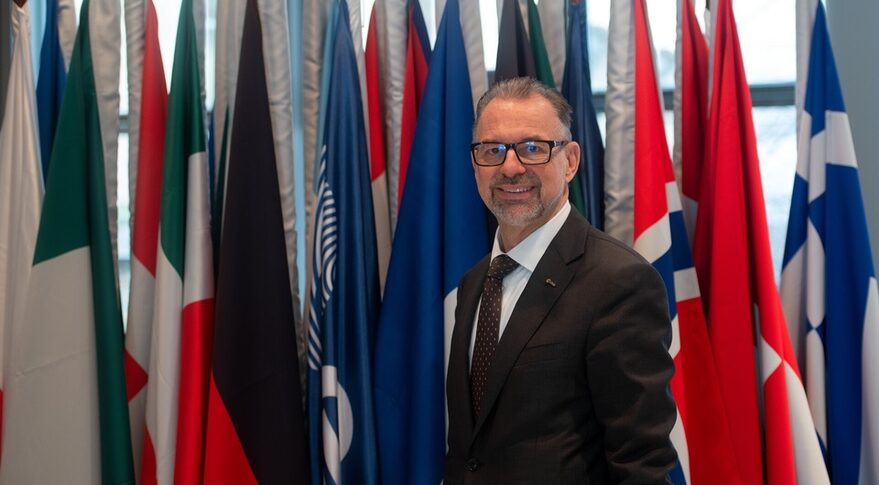
PARIS — The European Space Agency will seek a roughly 25% increase in funding from member states this fall despite economic and geopolitical challenges in Europe.
In a Sept. 12 speech at the World Satellite Business Week conference here, Josef Aschbacher, director general of ESA, said the agency will request more than 18 billion euros ($18 billion) from its members at November’s ministerial meeting, where members will agree to programs and funding levels for the next three years. In a tweet after the speech, he said ESA would request 18.7 billion euros.
At the last ministerial meeting, Space19+ in November 2019, ESA won 14.5 billion euros. The new proposal would be an increase of more than 25% from 2019 before taking inflation into account.
“I’m putting together a very ambitious package despite the current situation, despite the economic difficulties we have, because I firmly believe that, if we are not doing that, we will make a huge mistake in Europe,” he said.
Those difficulties include high inflation rates and the threat of recession, exacerbated by skyrocketing energy prices from restrictions on Russian oil and gas affected by Russia’s invasion of Ukraine and subsequent sanctions. Aschbacher acknowledged those conditions make it difficult to seek a major increase in funding for space programs.
“The preparation for the ministerial as challenging as ever before,” he said. “This is not a good boundary condition for a ministerial conference. Still, I believe that, because of this situation in which we are, we have to invest in space.”
He argued Europe needed to invest more in space to develop independent capabilities, citing the “painful” but necessary termination of links with Russia after the invasion of Ukraine. That included an indefinite delay in the launch of the ExoMars mission that was scheduled to launch this month and the need to find new launches for other European missions that can no longer fly on Soyuz.
“You realize, especially in Europe, how dependent we are in space on Russia,” he said. “We had to decouple our cooperation and our links with Russia very, very quickly. This is something that is not easy.”
That dependence is a factor for planning for the ministerial. “This realization of the dependence that we had is certainly a trigger and a message that I get very clearly, to make a package of ministerial proposals that is resilient, increases our independence and strengthens our European space sector overall to make sure that we can do what we need to do,” he said.
He did not go into details about what will be in that package of programs, although he highlighted space access and development of satellites in navigation, communications and Earth observation. He also emphasized the importance of being a “strong partner” for other nations and building up Europe’s commercial space sector. That international cooperation will likely include proposals for new contributions to NASA’s Artemis lunar exploration effort, such as a lunar cargo lander and communications network.
“Our package is still in negotiation,” he said, with meetings “constantly” with member states. He later tweeted that more than two billion euros would go to “new growth markets” in space.
“We are, despite the circumstances, optimistic,” he said. “We need a very strong space sector.”